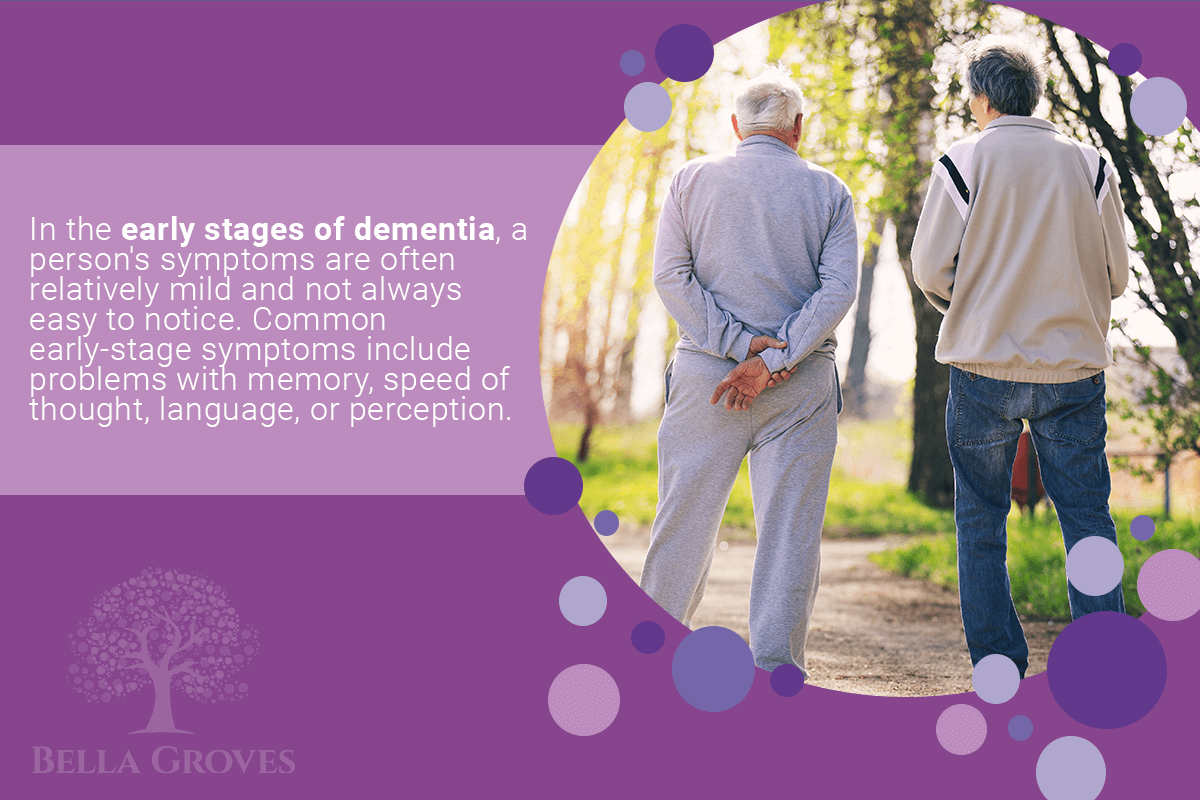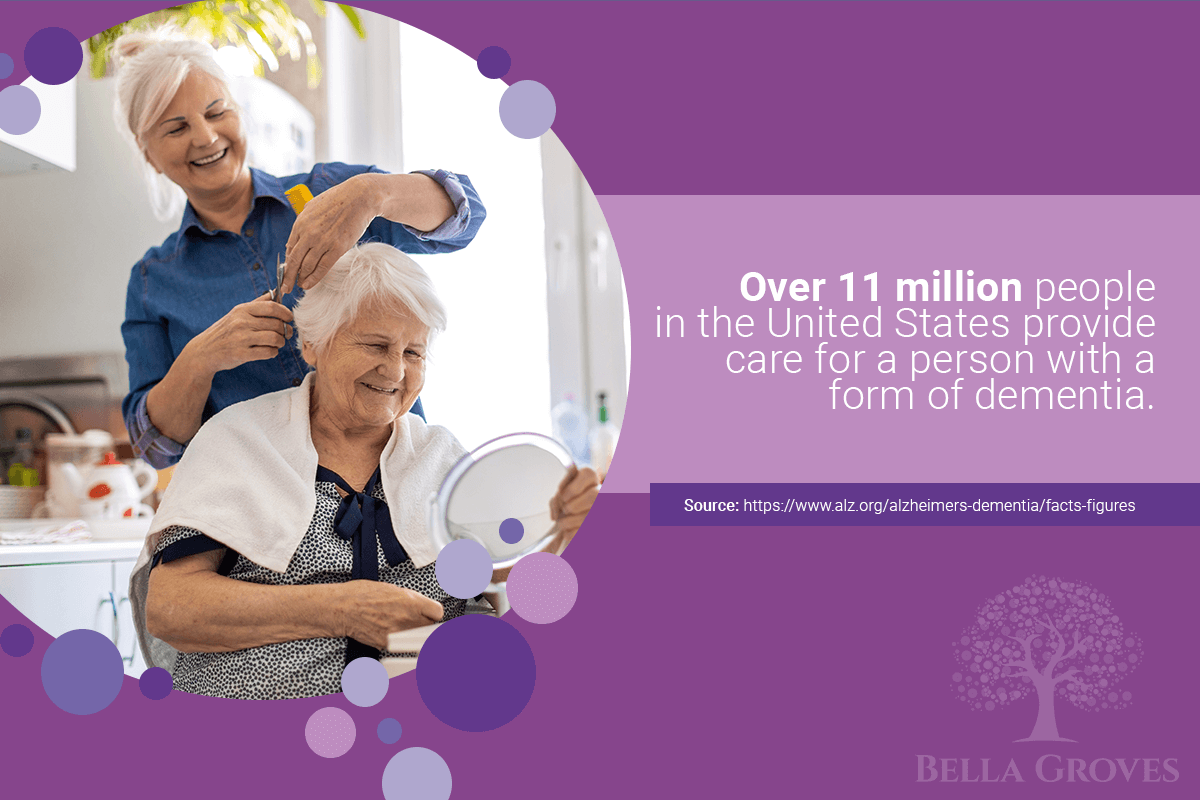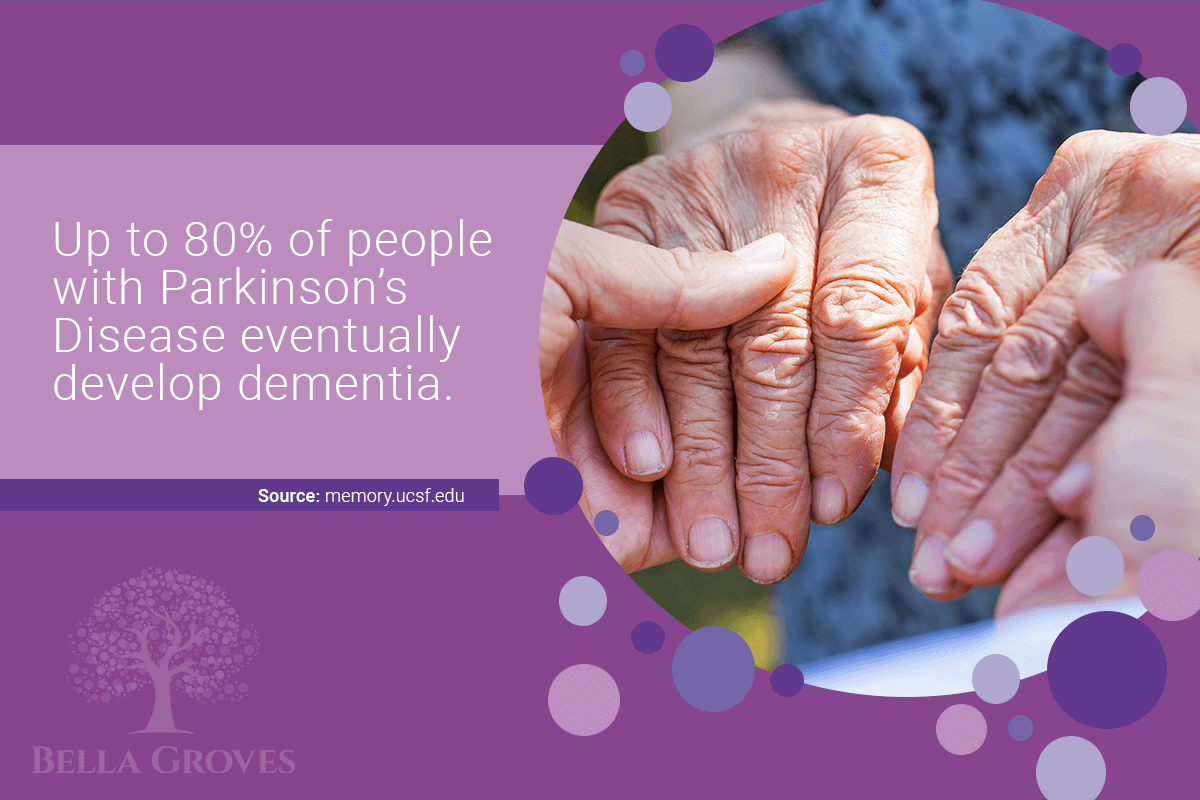
How to Help Someone with Early Dementia
Early dementia refers to the early stages of dementia following a diagnosis (not to be confused with early-onset dementia, which refers to a dementia diagnosis before the age of 65). If a parent or family member is living with early dementia, it’s crucial to pay attention to their social life, occupational situation, and other personal needs to ensure safety and be aware as the condition starts to progress.
Bella Groves is dedicated to creating unconditional joy at every stage of the dementia journey. Navigating early dementia confidently is vital to preparing for the future and maintaining your loved one’s quality of life through every stage of dementia.
Assist (As Needed) with Tasks & Routines
In the earliest stages of dementia, a person can likely continue living independently and participate in their usual activities and routines. Your role as a care partner is to provide support and companionship, as well as help them plan for the future.
Planning is essential, as it can help you prepare for the varying changes and challenges brought about by dementia. It’s important to keep in mind that dementia doesn’t necessarily make a person unable to do a task. First and foremost, you should determine whether or not your loved one is able to safely complete a task. For example, just because Mom has been diagnosed with dementia doesn’t mean she needs to immediately stop driving. Instead, establish a driving contract where Mom agrees to give you (or another person) decision-making power over when she stops driving. By doing this early in the journey, Mom can still drive, and you both have peace of mind knowing that when the time comes to stop, everyone involved is comfortable with the decision. Read our blog for more information about driving and dementia.
Family and Social Life
As you begin to navigate early dementia, speak honestly and openly with family members and friends about what to expect throughout this journey. Give each person time to share any fears or questions, and allow them to express their feelings without responding with judgment or negativity.
In addition, the person living with dementia needs to be able to express themselves. This is their personal journey, and they need to be able to share their feelings, their wishes, and how they want you to support them over time.
Do not let your loved one isolate themselves from relatives, friends, or neighbors. Dementia care is a collaborative experience, and it’s important to surround your loved one with love, support, and joy at every dementia stage.
Maximize Their Independence
During the various stages of dementia, the decline in cognitive ability and personality changes impact a person’s ability to participate in activities they enjoy, whether they’re still in the workforce or part of a monthly book club.
While every person experiences the early dementia stage differently, you might need to come up with a system to assist your loved one by developing cues or helpful reminders. For example, they might need assistance with:
- Remembering names, dates, or events
- Recalling places, people, or things
- Managing money and medications
- Transportation
Before focusing on areas that need to be improved in your loved one’s abilities, hone in on their strengths and determine how they can help keep them independent for as long as possible. As a care partner, you’ll need to maintain strong communication with your loved one and help them maintain their connection and engagement with the world around them.
Prepare for the Future
Early dementia is when “many people choose to make plans for the future while they still have the ability to do so. This includes making a Lasting power of attorney (LPA), and advance decisions and advance statements to ensure their wishes and preferences are made clear (alzheimers.org.uk).” As dementia progresses, additional care and support will be needed. Prepare for this by talking to your loved one about how they want their care handled in the future. For example, if they want to move to a memory care community, research options early in the journey so you can find one that your loved one is happy and comfortable with.
The core of our mission at Bella Groves is to ensure no person or family feels like they are navigating dementia alone. We’ve created educational resources and various service levels for everyone affected by dementia so that no matter where you are on your journey, you can access every ounce of support, care, and joy possible.
If you have questions about your dementia care journey, we invite you to call us at (210) 201-6951 or email us at hello@bellagroves.com.


